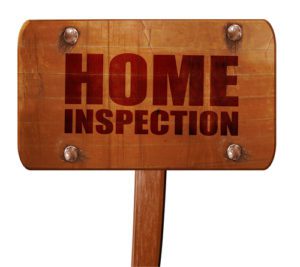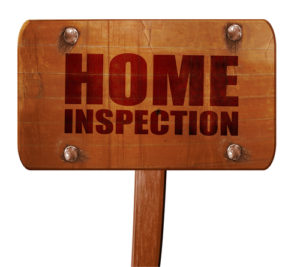Table of Contents:
- What is the Home Inspection Process
- Home Inspection Results: What Comes Next
- Seller’s Response to the Home Inspection
- What Happens if the Buyer Terminates the Contract
- Does the Buyer Get Their Money Back
- Home Inspections Do Not Have to Be a Bad Experience

Home Inspections are normally part of the contract. According to the National Association of Realtors, over 85% of buyers request and conduct a home inspection. Although the seller is required to disclose any known defects in the home, many major defects found were unknown to the seller.
Read the Article: What Happens if I Have a Bad Home Inspection
Every home regardless of age or quality bears a small, medium or a large list of imperfections. Some repairs are obvious, while others are only apparent to those who are trained and know what to look for. When a home gets inspected, there is no question as to if the inspector is going to uncover defects, it more a question of what, where, how serious and how expensive those issues turn out to be.
[su_divider divider_color=”#45f0cc”]
How to Prepare for a Home Inspection
The home must have the utilities on for inspection day. If this is a vacant home, most utility companies will turn on the water and power for a day in order for the inspection to be completed. Check with your local providers.

If you are the seller, prepare your home by removing items that may be blocking major components. For instance, if you have boxes in the garage, make sure they are not prohibiting access to the electrical panel, water heater, and attic staircase. Also, make sure that the home inspector can access the plumbing underneath the sinks and can move freely in the attic and crawl space. It is important that the home inspector has access to all major mechanicals. Otherwise, if the inspector has to make a second trip there could be an additional fee and the buyer may want you to reimburse them.
[su_divider divider_color=”#45f0cc”]
What Is the Home Inspection Process
Depending on the timeframe stated in your purchase agreement (usually the first 10 days after accepted offer), the buyer will hire a home inspector to thoroughly inspect the home for major and minor defects. The American Society for Home Inspectors (ASHI) has created a list of standards for certified inspectors. Part of the standards includes a guideline for what home inspectors should be evaluating during the home inspection. During the inspection process, the inspector takes photos and makes notes regarding maintenance items, major as well as minor repairs found throughout the home. As a result, the home inspector will provide a detailed summary report itemizing everything found along with the corresponding photos. Some inspectors also attach a value to the suggested repairs. Suggestion how much something cost really cannot be taken too seriously. The inspector is not a licensed contractor and cannot give relevance to the cost estimate. I find that when inspectors give repair values, they tend to be on the high side.
 A Home Inspection Includes the Following
A Home Inspection Includes the Following
- Mechanical
- Electrical
- Plumbing
- Structural
- Roofing
- Heating and Cooling
- Interior
- Attic
- Ventilation
- Fireplaces
- Outbuildings
Additional Inspections
- Radon
- Pest
- Lead Based Paint
- Mold
- Permits
[su_divider divider_color=”#45f0cc”]
Home Inspection Results: What Comes Next
The inspector will deliver the inspection results to the buyer and his/her Realtor. An inspection report can be a lengthy document and It is not uncommon for an inspector to make recommendations for additional professionals to conduct further evaluations on items such as the foundation or electrical for example. Remember, inspectors are usually not licensed engineers or electricians. They can only surmise that something does not look correct. Therefore, they may want the buyer to refer to the appropriate professional.
Once presented to the buyer, the buyer only has so many days to decide to move forward, or ask the seller for repairs. The buyer at the point has four options. First, the buyer may ask the homeowner for additional time to further evaluate an issue the inspector found. Second, they buyer may ask the seller to do the repairs or reduce the price in lieu of repairs. Third, the buyer may just want to terminate the contract. Finally, the buyer may accept the home in the condition found in the inspection.
If a home inspection presents a laundry list of even minor repairs, the report and overall experience can be discouraging even for a seasoned buyer, let alone a first-time buyer. In addition, many buyers purchasing the home as a second residence or vacation home, just do not want to be saddled with repairs and frankly, most are not around to oversee work.
[su_divider divider_color=”#45f0cc”]
 Seller’s Response to a Home Inspection
Seller’s Response to a Home Inspection
The buyer’s agent will contact the listing agent and present the request by the buyer. State purchase agreements dictate if the seller receives the home inspection or not. It is my opinion if the buyer is asking for items to be repaired or wants compensation from the seller, that the inspection should be provided to the seller. In fact, as an agent representing the seller, I ask for a copy of the inspection early so that the seller has a chance to review it prior to the buyer’s response. If the seller has an opportunity to review the home inspection prior to the buyer’s response, they may have time to get a few estimates for repairs.
It is truly up to the seller to make the decision to repair, discount or just say no. This is a negotiation process and most of the time, the buyer, and the seller meet somewhere in the middle. If the seller does decide to say no to any requests made by the buyer, they do run the risk of the buyer walking away. This is when the seller needs to check their ego. I have heard so many times sellers say, well it was good enough for me, it should be good enough for them. Maybe, it is just not good enough, period.
[su_divider divider_color=”#45f0cc”]
 What Happens if the Buyer Terminates the Contract
What Happens if the Buyer Terminates the Contract
If the seller’s response to the inspection is not to do any repairs nor offer compensation for repairs, the buyer may wish to terminate the purchase agreement. Every state is different regarding the verbiage in the purchase agreement. In Florida for example, the buyer has the right to terminate the contract if they are not happy with the home inspection. This leaves a pretty wide margin for the buyer to just walk. In some states like Florida, the buyer does not have to provide a reason for the termination.
If there were major defects found in the home inspection, the seller now in most states is required to disclose those known defects. In addition, the listing agent representing the seller is required to disclose any latent defects that he or she is aware of.
[su_divider divider_color=”#45f0cc”]
Does the Buyer Get Their Earnest Money Back
Should the buyer decide not to move forward after the findings of the home inspection, most of the time, the escrow money is returned to the buyer. This also holds true if the seller responded that no repairs would be done to the property and that response is unacceptable to the buyer.
However, if the time specified for the home inspection and buyer’s response has expired, the seller may be entitled to receive the escrow deposit. For instance, the buyer responds that they would like to have the seller repair a few items. Since the response is too late, the seller declines the buyer’s request. As a result, the buyer wants to back out of the contract and asks for the deposit back. It is at that point that a question of escrow entitlement and possible dispute begins.
That is why is extremely important for everyone in the transaction to follow the time frames that were established in the purchase agreement. I have on several occasions, seen the buyers drag their feet and not respond in the time frame allowed and lose their deposit.
[su_divider divider_color=”#45f0cc”]
Home Inspections Don’t Have to Be a Bad Experience
A Home inspection is an attempt to gather information about the property without any personal opinions. It is a factual report and is not a repair list for the seller. The fact is the sellers are not obligated to produce a perfect home. However, it is up to the buyer to decide how they want to proceed with the contract. Evaluate the major repairs and realize that if you are the seller perhaps it is in the best interest of everyone to do those repairs or make a monetary consideration to the buyer so they can oversee those repairs when they become the owners. Sometimes major safety issues are found and need to be addressed immediately.
Taking the emotions out of the equation and consider that a home inspection is a fact-finding expedition. How you deal with the inspection and can go a long way in getting to the closing table without all the drama. Selling and or buying a home can be a stressful time. If we all decide to treat each party with respect and consideration the process of having the home inspection can be an OK experience.
I have been in real estate sales for over 24 years. I am originally from the Midwest and have lived in beautiful Florida for over a decade. My career sales are over 2,300 homes sold. There aren’t too many obstacles I haven’t encountered throughout my work history. I provide you with honest advice backed by years of experience and understand that a real estate purchase or sale is your top priority.
Nationally recognized. Licensed FL Real Estate Instructor. Contact me at SandyWilliamsFLA@gmail.com or call 941-564-9491


